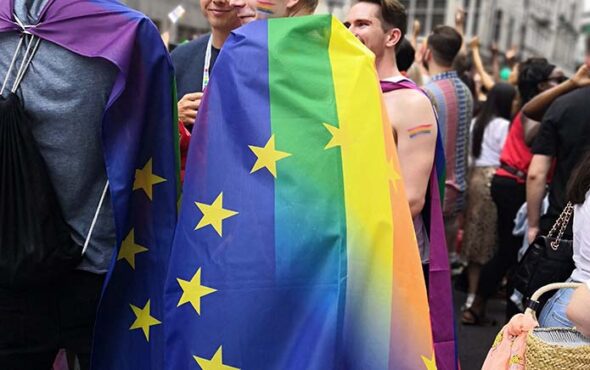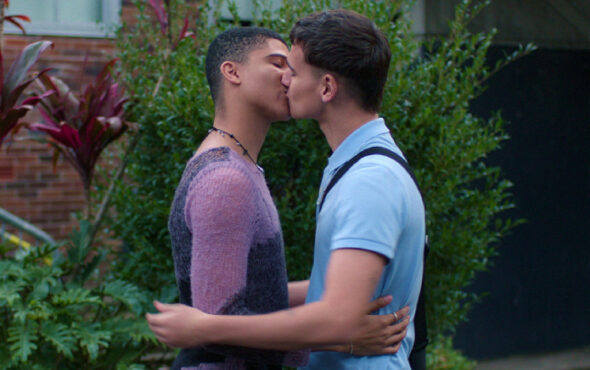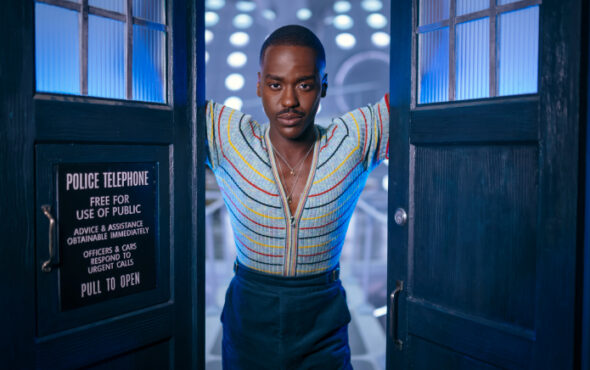
Gareth Lee has lost a seven-year legal battle over a bakery in Belfast refusing to make him a cake with “support gay marriage” written on it.
On 6 January, the European Court of Human Rights (ECHR) ruled that Lee’s claim against the bakery was inadmissible.
In 2016, a Belfast county court and a court of appeal both reached the outcome that Lee had been discriminated against by the bakery because of his sexual orientation.
Two years later, however, the UK Supreme Court overturned the failed appeal by Ashers bakery – which is run by evangelical Christians – and said that the bakers in question were objecting to the slogan on the cake, as opposed to Lee himself.
By a majority decision, the ECHR confirmed that it would not reconsider the Supreme Court’s ruling due to Lee apparently relying on domestic law instead of invoking his rights under the European Convention on Human Rights.
It said: “The supreme court found on the facts of the case that the applicant was not treated differently on account of his real or perceived sexual orientation, but rather that the refusal to supply the cake was because of the defendants’ religious objection to gay marriage.
“What was principally at issue, therefore, was not the effect on the applicant’s private life or his freedom to hold or express his opinions or beliefs, but rather whether Ashers bakery was required to produce a cake expressing the applicant’s political support for gay marriage.”
The ECHR claimed that there was a balancing act it faced when considering the rights of Lee against those of Daniel and Amy McArthur, the owners of the bakery, which was “a matter of great import and sensitivity to both LGBTIQ communities and to faith communities”.
“This is particularly so in Northern Ireland, where there is a large and strong faith community, where the LGBTIQ community has endured a history of considerable discrimination and intimidation, and where conflict between the rights of these two communities has long been a feature of public debate,” it further explained.
Lee, who asked for the cake to be made back in 2014, issued a statement saying that this ruling “has put a spotlight” on LGBTQ+ inequality in Northern Ireland.
“None of us should be expected to have to figure out the beliefs of a company’s owners before going into their shop or paying for their services,” he said.
“This case has put a spotlight on the challenges faced by LGBT+ in Northern Ireland. I will continue to support all law that protects and gives rights to all people equally.”
Nancy Kelley, CEO of Stonewall, called the ruling “a backwards step for equality.”
“Human rights belong to people, not businesses,” she stated. “No business should discriminate against their customers, and no discriminatory behavior should be held up by equality law. Today’s decision leaves the door open for legal uncertainty across the UK and causes continued unease for our communities.”
Kelley added that she and Stonewall will “continue to work” with the Rainbow Project, the most prominent LGBTQ+ organisation in Northern Ireland, to fight for equality.
“Our thoughts are with Gareth Lee, who deserved more support from the European Courts after seven years of working towards equality,” she continued. “At Stonewall, we will continue to work with our partners, the Rainbow Project, to address the implications of this judgement for all lesbian, gay, bi, trans and queer communities.”
Peter Tatchell, LGBTQ+ and human rights campaigner, supported the ruling as “no one can be compelled to facilitate political views with which they disagree.”
He said: “I strongly disagree with Asher’s opposition to same-sex marriage and have great sympathy with Gareth Lee and the LGBT+ community in Northern Ireland.
“However, Asher’s did not refuse to serve Gareth and did not discriminate against him because of his sexual orientation. They refused to decorate his cake with a political message in support of marriage equality.
“In a free society, and under UK equality laws, no one can be compelled to facilitate political views with which they disagree.
“If the judgement had gone the other way, a gay baker could have been forced by law to accede to requests to decorate cakes with messages opposing LGBT+ equality.”
The Rainbow Project has expressed its disappointment at the European Court of Human Rights decision on Lee v. the United Kingdom. https://t.co/Tf3RhHsG3R pic.twitter.com/0YUhmHwjUe
— The Rainbow Project (@TRPNI) January 6, 2022



